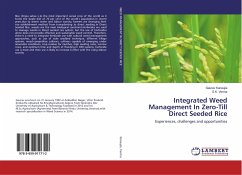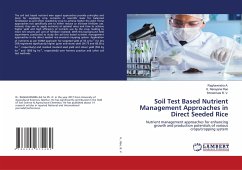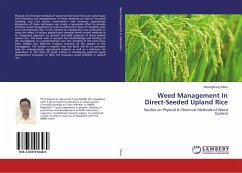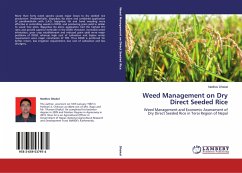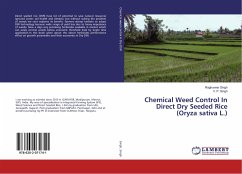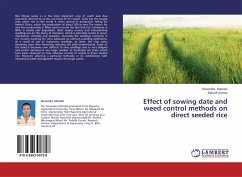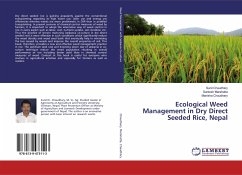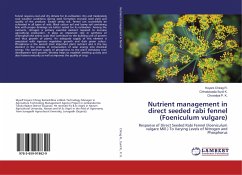Rice (Oryza sativa L.)is the most important cereal crop of the world as it forms the staple diet of 70 per cent of the world's population.In recent years,due to severe water and labour scarcity, farmers are changing their rice establishment method from transplanting to direct seeding.In Direct Seeded Rice ,weeds are the main biological constraint.Herbicides are used to manage weeds in Direct seeded rice system, but the use of herbicides alone does not provide effective and sustainable weed control. Therefore, there is a need to integrate herbicide use with cultural weed management approaches, such as use of stale seedbed technique, different tillage systems, weed-competitive cultivars, cultivars capable of emerging under anaerobic conditions, crop residue for mulches, high seeding rates, narrow rows, and optimum time and depth of flooding.In DSR systems, herbicide use is must and their use is likely to increase further with the rising labour scarcity
Bitte wählen Sie Ihr Anliegen aus.
Rechnungen
Retourenschein anfordern
Bestellstatus
Storno

